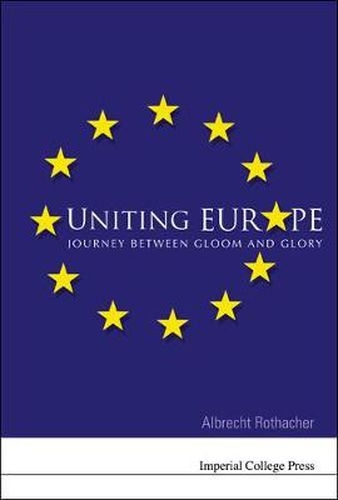Readings Newsletter
Become a Readings Member to make your shopping experience even easier.
Sign in or sign up for free!
You’re not far away from qualifying for FREE standard shipping within Australia
You’ve qualified for FREE standard shipping within Australia
The cart is loading…






This book sets out to give a straightforward insider’s account of the current realities of European integration. It succinctly reviews the reasons and methods of European integration, analyses what the European Union (EU) really does, and examines how funds are spent. The whole range of current EU policies is critically reviewed: the Single market; the Euro; and the common policies on agriculture, fisheries, the regions, industry, competition, transport, the environment, social affairs, consumer protection, research, taxation, justice, trade, development, foreign affairs and defence. This book argues for a much slimmed-down European executive. It needs to become fully accountable in a democratically legitimised bicameral federal system, and take charge only of policies essential for effective internal and external security and for a working economic and monetary union. To avoid policy paralysis and continued mismanagement by a redistributive and over-regulatory bureaucracy, most of the current low politics and EU funds should be returned to the member states and their regions. This book thus makes a long overdue informed contribution to the debate on Europe’s future constitution.
$9.00 standard shipping within Australia
FREE standard shipping within Australia for orders over $100.00
Express & International shipping calculated at checkout
This book sets out to give a straightforward insider’s account of the current realities of European integration. It succinctly reviews the reasons and methods of European integration, analyses what the European Union (EU) really does, and examines how funds are spent. The whole range of current EU policies is critically reviewed: the Single market; the Euro; and the common policies on agriculture, fisheries, the regions, industry, competition, transport, the environment, social affairs, consumer protection, research, taxation, justice, trade, development, foreign affairs and defence. This book argues for a much slimmed-down European executive. It needs to become fully accountable in a democratically legitimised bicameral federal system, and take charge only of policies essential for effective internal and external security and for a working economic and monetary union. To avoid policy paralysis and continued mismanagement by a redistributive and over-regulatory bureaucracy, most of the current low politics and EU funds should be returned to the member states and their regions. This book thus makes a long overdue informed contribution to the debate on Europe’s future constitution.